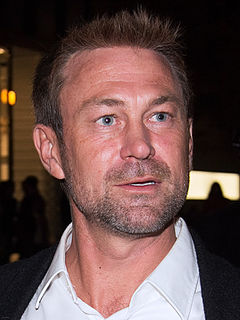A Quote by Marc Randolph
Who knows what form storytelling will take in the future?
Related Quotes
Television is what we call the long form of storytelling, where we tell stories over thirteen, twenty-two, or twenty-four hours. Miniseries is an eight-hour form of storytelling, and film is a two-hour form. Each and every one of them are important to me, because they're a different modality of storytelling.
Congratulations on the new library, because it isn't just a library. It is a space ship that will take you to the farthest reaches of the Universe, a time machine that will take you to the far past and the far future, a teacher that knows more than any human being, a friend that will amuse you and console you-and most of all, a gateway, to a better and happier and more useful life.
There's something within you that knows what to do. There is a power greater than you that knows how to take care of you without your help. All you've got to do is to surrender to it. Surrender your thoughts, your mind, your ego, to the current that knows the way. It will take care of you. It will take better care of you than you can ever imagine.
The storytelling mind is allergic to uncertainty, randomness, and coincidence. It is addicted to meaning. If the storytelling mind cannot find meaningful patterns in the world, it will try to impose them. In short, the storytelling mind is a factory that churns out true stories when it can, but will manufacture lies when it can’t.
The future of narrative? Built in, part of the human template. Not going away. The future of the codex book, with pages and so forth? A platform for transmitting narratives. There are others. The scroll is coming back (Twitter is a scroll.) Short forms are returning online. Interactivity is coming back; it was always there in oral storytelling. Each form has its pluses and its minuses.
In the future, women will have breasts all over. In the future, it will be a relief to find a place without culture. In the future, plates of food will have names and titles. In the future, we will all drive standing up. In the future, love will be taught on television and by listening to pop songs.



































